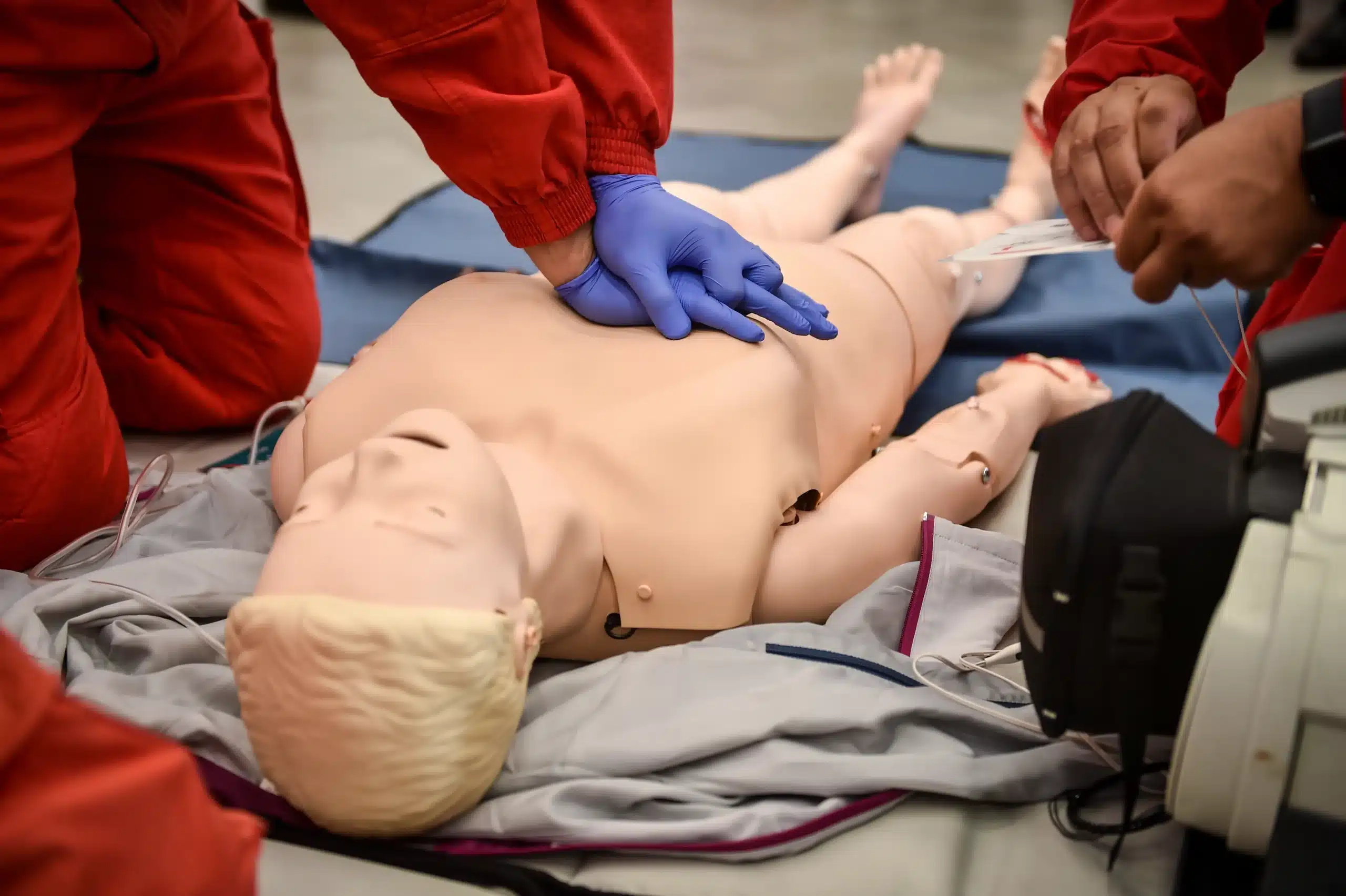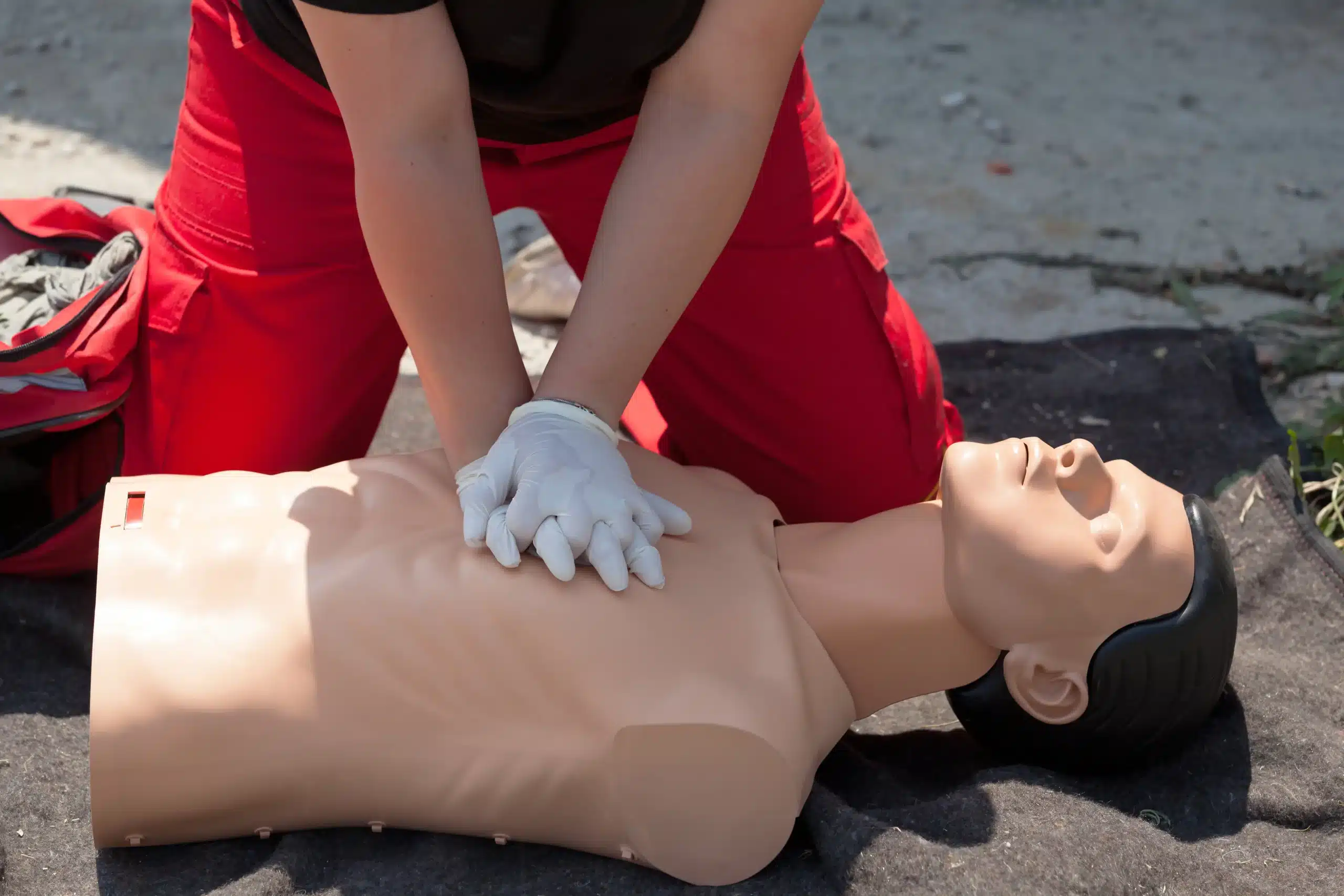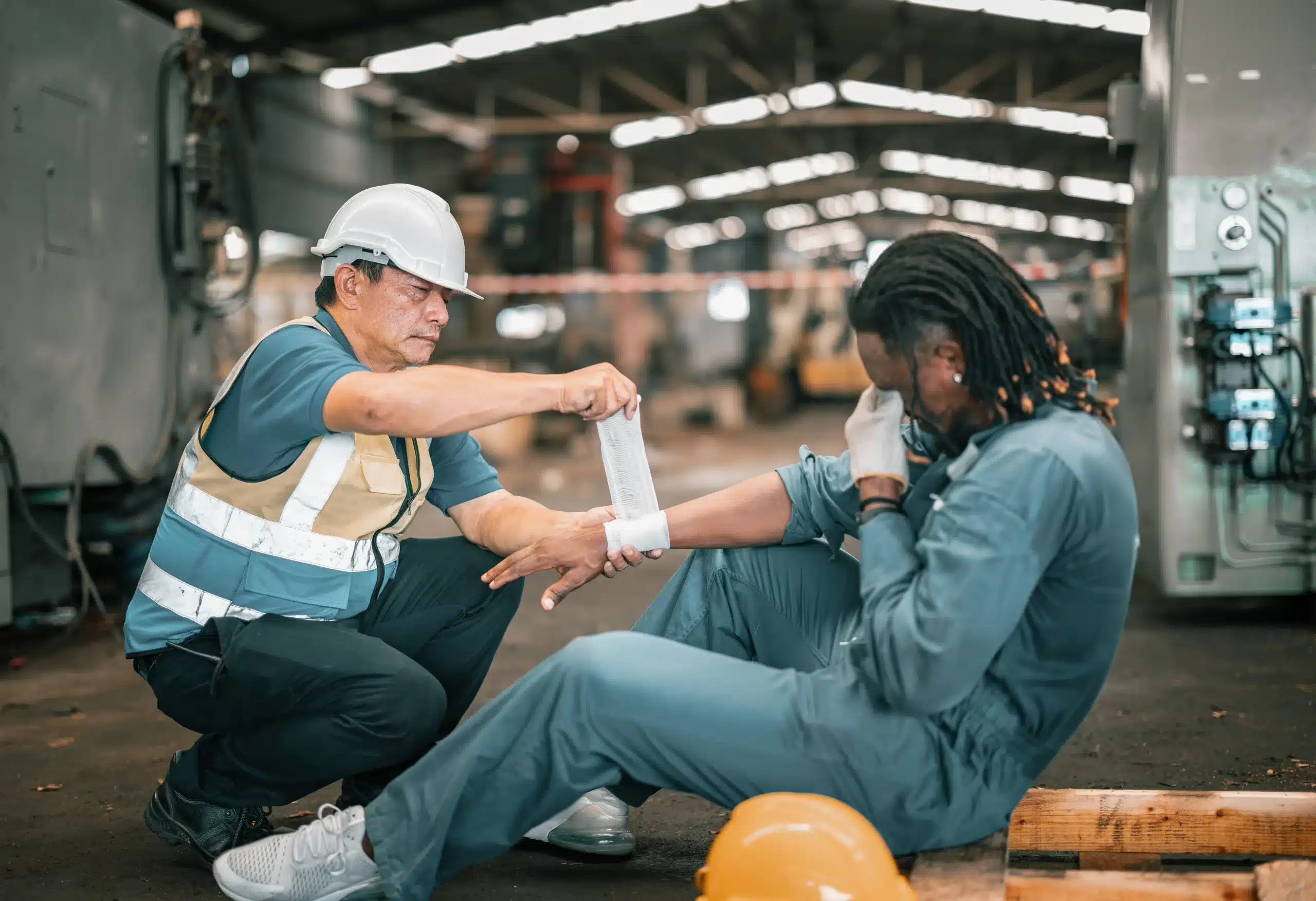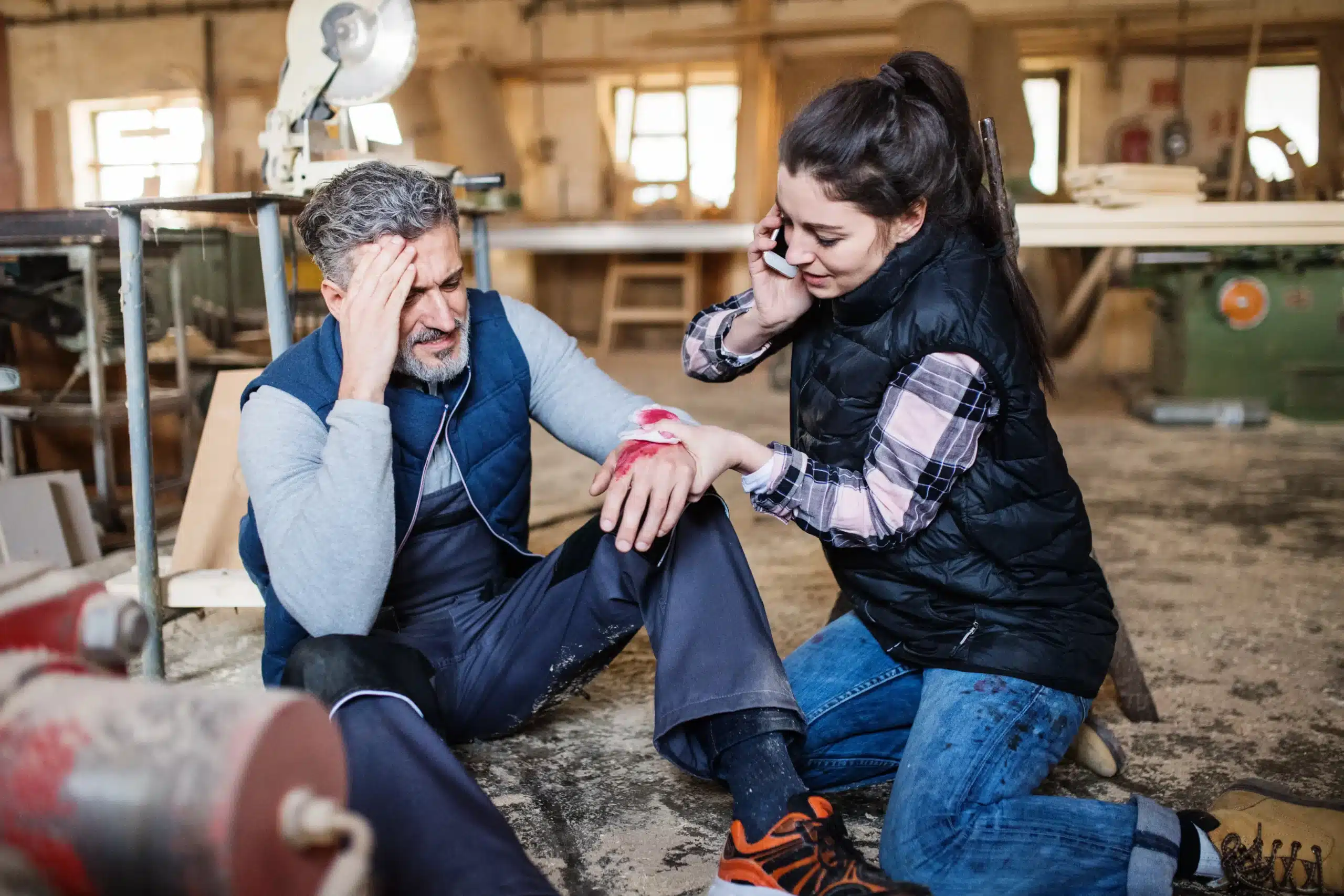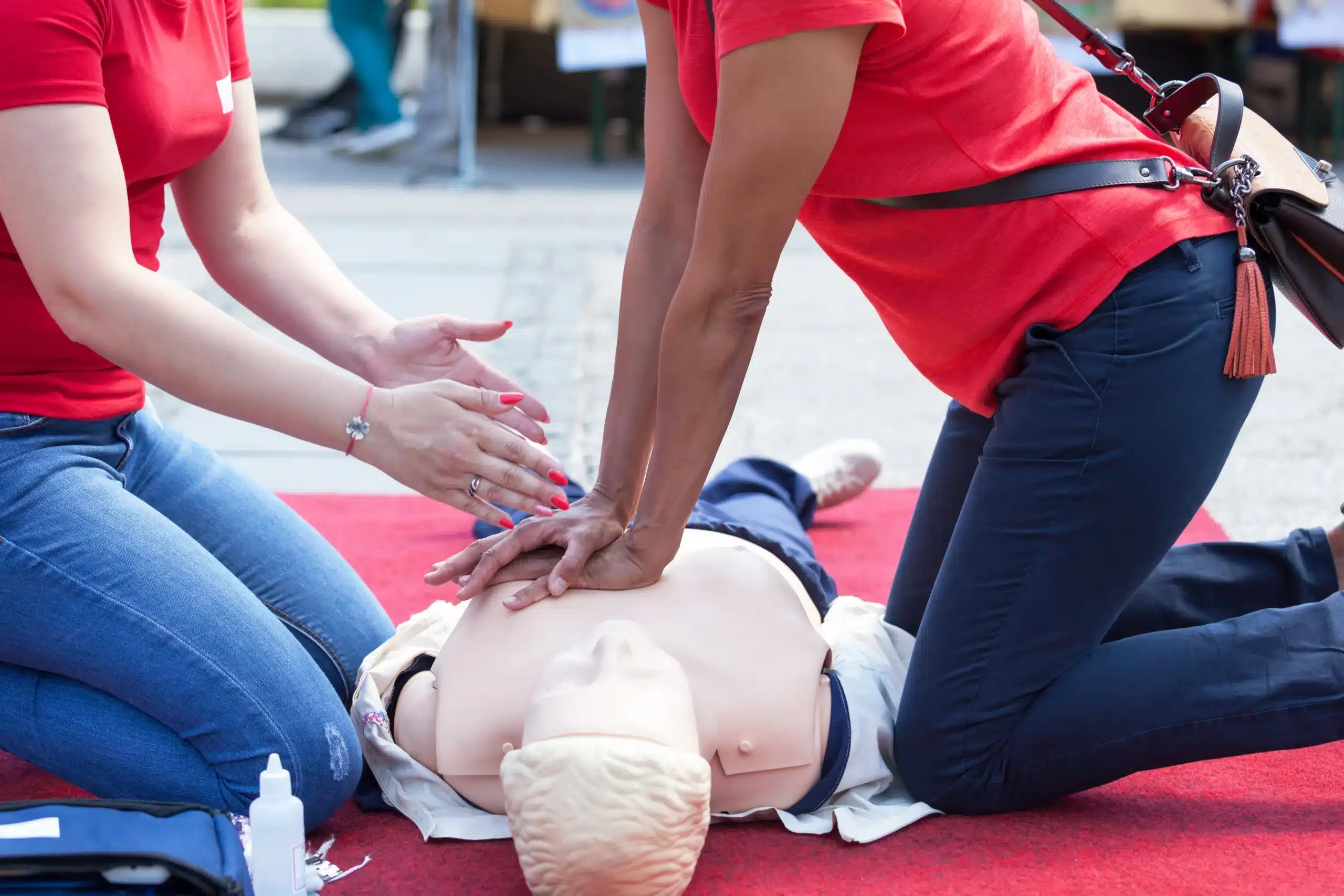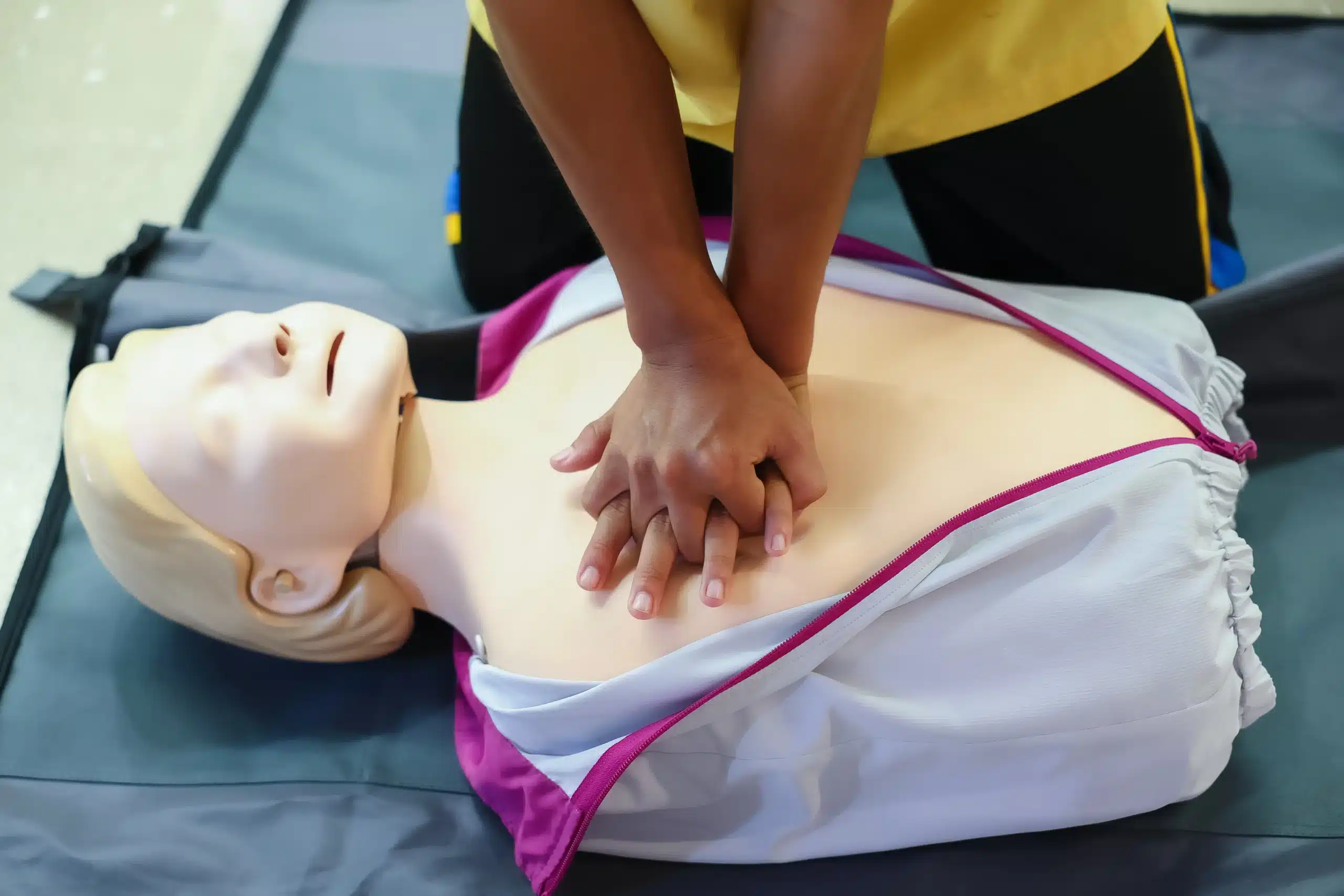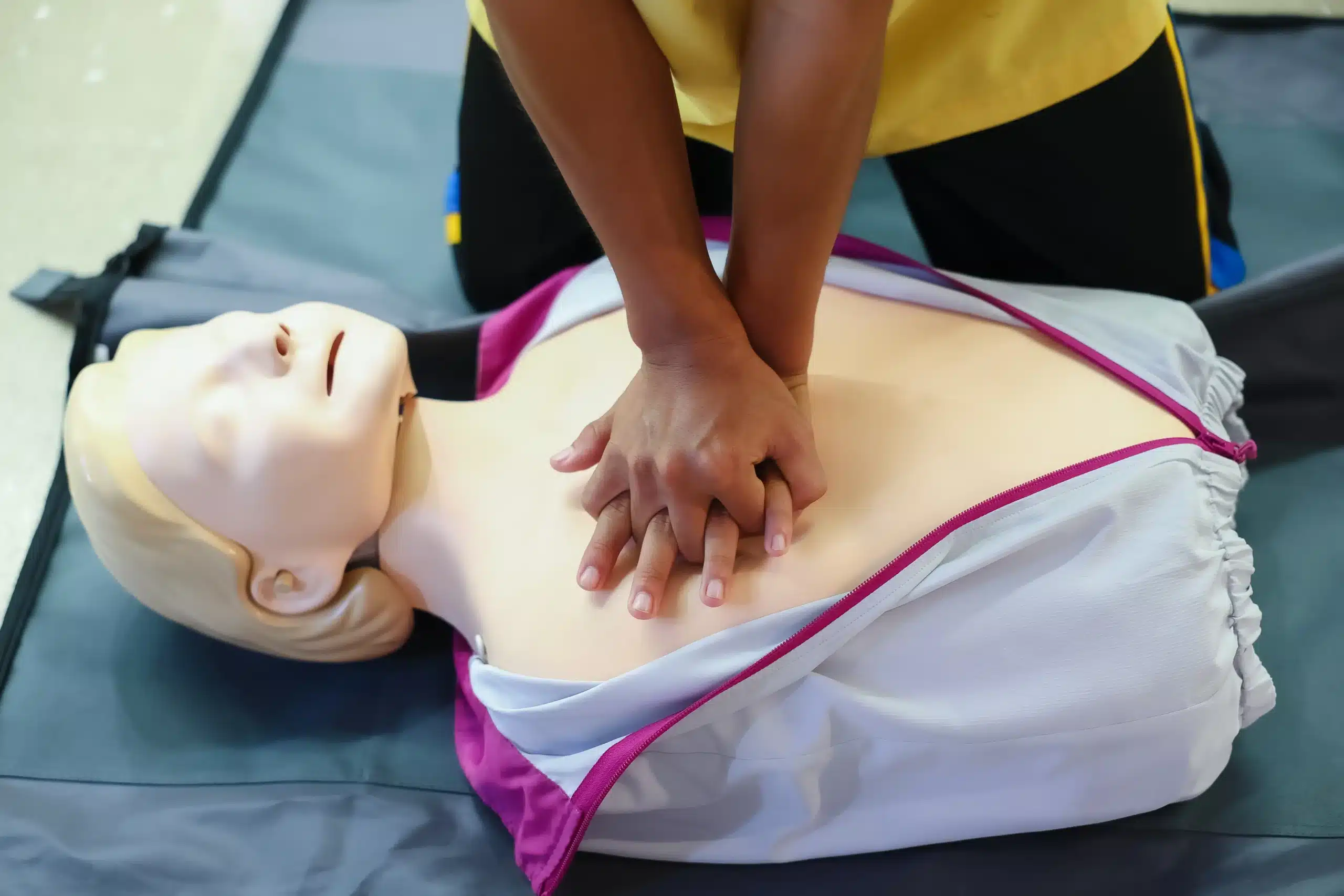CPR is more than just a skill; it’s a powerful act of empowerment. In San Jose, where emergencies can occur unexpectedly, knowing CPR can transform you from a bystander into a potential life-saver. This article delves into the world of CPR training in San Jose, providing a comprehensive overview of the various courses, certifications, and resources available to those seeking to learn this invaluable skill. We’ll explore the different types of CPR classes, discuss the costs involved, and highlight the numerous benefits of becoming certified, both for personal and professional growth. Whether you’re a healthcare provider, a student, a parent, or simply a concerned citizen, this guide will equip you with the knowledge and confidence to respond effectively in times of emergency, contributing to a safer and more resilient San Jose community.
Key Takeaways
- CPR skills empower you in emergencies: Learning CPR equips you to respond confidently and potentially save lives in your community. Find a course that suits your schedule and needs.
- Select the right CPR class: Consider instructor qualifications, course format (online, in-person, or hybrid), and offered certifications to ensure the training aligns with your goals.
- Maintain your CPR skills: Stay current with guidelines and renewal requirements to keep your skills sharp. Explore convenient options like blended learning and the RQI program.
What is CPR and Why is it Important in San Jose?
Cardiopulmonary Resuscitation (CPR) is a life-saving technique used when someone’s heartbeat or breathing has stopped. It involves chest compressions, and sometimes rescue breaths, to keep blood flowing to the brain and vital organs until professional help arrives. CPR is essential in emergencies like cardiac arrest, where every second is critical.
Why is CPR training so important in San Jose? Immediate CPR significantly increases someone’s chances of survival during cardiac arrest. The American Heart Association states that performing CPR can double or even triple a victim’s chance of survival. This is especially crucial in a busy city like San Jose, where emergency response times can vary. Having trained individuals nearby, ready to step in, can make all the difference. training in San Jose, ensuring residents are prepared for emergencies. You can find BLS courses in San Jose (specifically Willow Glen) through Safety Training Seminars. They also offer the convenient RQI program for healthcare providers needing to refresh their skills, and specialized training like the EMSA Health, Safety, and Lead Poisoning course for California childcare providers.
Top CPR Training Providers in San Jose
Finding the right CPR training provider is crucial for a positive and effective learning experience. Here are some of the top CPR training providers in San Jose:
Safety Training Seminars
Safety Training Seminars offers American Heart Association (AHA) certified courses in CPR, BLS, ACLS, and PALS, plus First Aid and EMSA certifications. They also offer various renewal options, including the convenient RQI program for healthcare providers and renewal courses for BLS, ACLS, and PALS. With a focus on excellent customer service and flexible scheduling, they strive to make life-saving skills accessible to everyone in the San Jose area, including nearby cities like Santa Clara and Sunnyvale. Check their course calendar for upcoming classes in San Jose (Willow Glen). For childcare providers in California, they offer EMSA Health, Safety, and Lead Poisoning training. Safety Training Seminars also offers a low price guarantee, ensuring you receive high-quality training at an affordable price.
American Red Cross
The American Red Cross in San Jose offers CPR and First Aid classes that equip you with job-relevant skills compliant with OSHA standards. With both in-person and blended online/in-person options, they provide flexibility to fit your schedule.
CPR Training Center
The San Jose CPR Training Center offers AHA-certified classes in CPR, BLS, ACLS, PALS, and First Aid. With two convenient locations in San Jose—Willow Glen and Downtown—they make it easy to find a class near you.
Bay Area CPR
Bay Area CPR provides a range of CPR, BLS, ACLS, and PALS courses in Downtown San Jose. Their comprehensive curriculum ensures you gain a thorough understanding of CPR and first aid techniques.
ProCPR
ProCPR offers the convenience of online CPR training, allowing you to learn at your own pace. Their courses cater to both healthcare professionals and the general public. Be sure to check their website for specific course offerings and details.
CPR Class Types and Certifications
Different CPR certifications cater to various needs and skill levels. Understanding these distinctions will help you choose the right course.
Basic Life Support (BLS)
BLS certification is the foundation for healthcare providers and anyone responding to life-threatening emergencies. It covers core skills like CPR, recognizing and relieving choking, and using an AED. The American Heart Association RQI program is a popular choice for medical professionals seeking BLS certification in San Jose. It offers a flexible, self-directed learning experience combined with low-dose, high-frequency skills sessions to keep skills fresh and reinforce best practices. For those in San Jose’s Willow Glen neighborhood, conveniently located BLS courses are available.
Advanced Cardiovascular Life Support (ACLS)
ACLS certification builds upon BLS, focusing on advanced interventions for adult victims of cardiac arrest and other cardiovascular emergencies. It’s designed for healthcare professionals like doctors, nurses, and paramedics who manage these emergencies. Safety Training Seminars offers ACLS training in San Jose, equipping participants with the knowledge and skills to provide comprehensive care in critical situations.
Pediatric Advanced Life Support (PALS)
PALS certification focuses on the specialized needs of infants and children facing respiratory and cardiovascular emergencies. Like ACLS, it’s geared towards healthcare providers who regularly work with pediatric patients. Safety Training Seminars also provides PALS certification, giving healthcare professionals the expertise to respond effectively to pediatric emergencies.
First Aid and CPR Combination Courses
Combining First Aid and CPR training creates a well-rounded skill set for responding to various emergencies. These courses cover essential first aid techniques for injuries like cuts, burns, and fractures, in addition to CPR skills. This combined approach makes it convenient to gain comprehensive emergency response knowledge.
Specialized Industry Courses
Certain industries, like childcare, require specialized safety training. Safety Training Seminars offers courses covering health, safety, and lead poisoning specifically for California childcare providers. These courses ensure professionals meet regulatory requirements and have the skills to handle industry-specific emergencies. They also offer various renewal options, including the RQI program for healthcare providers and renewal courses for certifications like BLS, ACLS, and PALS.
CPR Class Costs and Value in San Jose
CPR certification is an investment in life-saving skills, and understanding the associated costs is an important first step. Let’s break down the price ranges, potential discounts, and resources available in San Jose.
Average Price Ranges
CPR class costs in San Jose, much like in nearby Oakland, vary based on a few key factors. Basic CPR courses covering adult CPR will typically be less expensive than more comprehensive courses that include child and infant CPR. All-inclusive courses, which often bundle CPR with first aid training, naturally come at a higher price. The class format matters, too. In-person classes, like those offered at our Willow Glen location, tend to be more expensive than online options due to smaller class sizes and personalized instruction. Online CPR classes are often the most budget-friendly, but it’s important to confirm they meet all requirements for your workplace.
Discounts and Group Rates
If you’re training a team or group, inquire about group discounts. Many providers, including Safety Training Seminars, offer reduced rates for group bookings, making it more cost-effective to train together. This can be a great option for businesses, community organizations, or even groups of friends.
Free Online Resources
While certification from a recognized organization like the American Heart Association is usually required for professional purposes, free online resources can supplement your training. Websites like AED CPR offer free online CPR and first aid courses, providing a convenient way to familiarize yourself with the basics. These resources can be helpful for refreshing your knowledge or gaining a better understanding of life-saving techniques. However, keep in mind that free online-only courses may not meet all workplace requirements. For official certification, consider our American Heart Association BLS course. You can also learn more about our RQI program for healthcare professionals.
Safety Training Seminars’ Low Price Guarantee
At Safety Training Seminars, we believe that high-quality CPR training should be accessible to everyone. We’re proud to offer a low price guarantee, ensuring you receive excellent value for your training investment. We also offer specialized courses like the EMSA Health and Safety course, designed for California childcare providers. Our commitment to comprehensive training and competitive pricing makes us a top choice for CPR certification in San Jose.
Benefits of CPR Certification
Getting CPR certified isn’t just about acquiring a skill; it’s about empowering yourself and contributing to a safer community. The benefits extend beyond the classroom, impacting your personal life, career prospects, and the well-being of those around you.
Personal Preparedness
Imagine being faced with a medical emergency where someone needs CPR. It’s a situation nobody wants to encounter, but being prepared can make all the difference. Learning CPR equips you with the skills and confidence to respond effectively in such critical situations. Whether it’s a family member, friend, or even a stranger, you’ll have the ability to provide immediate assistance, potentially saving a life. This personal preparedness brings peace of mind, knowing you can make a difference when it matters most. For more information on CPR training and its importance, explore this comprehensive guide on CPR training in San Jose.
Professional Advantages
In today’s competitive job market, CPR certification can be a valuable asset. Many employers, especially in healthcare, education, and childcare, prefer or even require CPR certification. Listing this credential on your resume demonstrates your commitment to safety and your willingness to go the extra mile. It can give you an edge over other candidates and open doors to new career opportunities. Even if it’s not a strict requirement, having CPR certification showcases your proactive approach to emergency situations, a quality highly valued by employers. Explore the various CPR, BLS, ACLS, and PALS courses available in downtown San Jose to enhance your professional qualifications.
Community Impact
Becoming CPR certified means you’re not just prepared for personal emergencies; you’re also contributing to a safer community. When more people are trained in CPR, the chances of survival for cardiac arrest victims increase significantly. You become a valuable link in the chain of survival, able to provide immediate assistance while professional help is on the way. This community impact creates a ripple effect, fostering a culture of preparedness and resilience. Learn more about the importance of community CPR training and dispel common misconceptions by reading this article on CPR myths.
What to Expect in a CPR Class
Getting ready for your first CPR class? It’s normal to feel a little uncertain about what’s involved. Knowing what to expect can help you feel prepared and confident. Here’s a glimpse into a typical CPR class experience:
Course Structure
CPR classes in San Jose offer a range of options, from basic life-saving skills to advanced medical certifications. Many training centers, including our own, offer combined First Aid and CPR courses to give you a well-rounded skill set. You’ll find courses designed for different experience levels, whether you’re a complete beginner or a healthcare professional looking to refresh your skills. Expect a combination of interactive lectures, demonstrations, and practice scenarios. For example, our BLS course covers core life support skills.
Hands-On Practice
CPR classes are very hands-on. You’ll learn the essential techniques for performing CPR on adults, children, and infants. You’ll use a CPR training mannequin to practice chest compressions and rescue breathing techniques. This hands-on practice helps build muscle memory and confidence, giving you the skills to respond effectively in a real emergency. You’ll also learn how to recognize the signs of a heart attack or stroke. Our courses in Willow Glen provide ample opportunity for this crucial hands-on training.
Certification Process
Upon successful completion of the course, you’ll receive a certification card. The American Heart Association RQI program is a popular choice for medical professionals seeking BLS, ACLS, and PALS certifications. This program offers a modern and efficient way to get certified. Your instructor will explain the specific certification process during your class. Make sure to ask any questions you have about maintaining your certification. You can learn more about the RQI program on our website.
Choose the Right CPR Course
Finding the right CPR course is crucial for effective learning and preparedness. With various options available, consider these factors to make an informed decision.
Factors to Consider
When selecting a CPR training provider in San Jose, several factors come into play. Look for qualified and experienced instructors who can create a supportive learning environment. Consider course formats and schedules to find one that fits your availability. Don’t forget to check the provider’s reputation and reviews—Safety Training Seminars, for example, is known for its excellent customer service and convenient location in the Willow Glen neighborhood. Finally, ensure the course offers the specific certification you need, whether it’s American Heart Association BLS or another recognized credential.
Online vs. In-Person vs. Hybrid Training
CPR training comes in different formats. Online CPR training offers flexibility, allowing you to learn at your own pace from anywhere. However, in-person classes provide the hands-on practice and personalized feedback essential for mastering CPR techniques. This direct interaction with an instructor is invaluable for building confidence and addressing individual questions. Some providers offer hybrid training, combining online learning with in-person skills sessions. While online components can be convenient for learning the basics, remember that in-person training is crucial for developing the muscle memory and practical skills needed to perform CPR effectively.
Course Duration and Scheduling
CPR course duration and scheduling vary depending on the type of certification. Safety Training Seminars offers a range of AHA-certified courses, including BLS, ACLS, PALS, and First Aid, with convenient daily schedules in San Jose and surrounding areas like Santa Clara and Sunnyvale. They also provide renewal options like the RQI program for healthcare professionals. Check their course calendar for BLS courses in San Jose and specific dates and times for other courses. If you’re a childcare provider in California, you might need specialized training like the EMSA Health, Safety, and Lead Poisoning course, also available through Safety Training Seminars. With various scheduling options, you can find a course that fits your busy lifestyle.
Maintain Your CPR Certification
CPR certification isn’t a one-and-done deal. Keeping your skills fresh is crucial for responding effectively in a real emergency. This section covers what you need to know about renewing your certification and staying up-to-date with the latest guidelines.
Renewal Requirements
CPR certifications, like those from the American Red Cross, are typically valid for two years. Before your certification expires, you’ll need to take a renewal course. This ensures your skills and knowledge are current. Don’t let your certification lapse—stay prepared!
Continuing Education Options
Several convenient options exist for renewing your CPR certification. For busy healthcare professionals, blended learning courses that combine online learning with a brief in-person skills session are a great choice. Safety Training Seminars offers this format, including quick 45-minute skills check sessions after you complete the online portion. They also offer the convenient RQI program for healthcare providers needing to renew their BLS, ACLS, and PALS certifications. This flexible approach makes staying current with your certifications manageable, even with a demanding schedule. You can learn more about the RQI program on their website.
Common CPR Training Misconceptions
Let’s clear up some common misconceptions about CPR training. These myths can prevent people from learning this life-saving skill, so it’s important to address them head-on.
“CPR is Only for Medical Professionals”
One of the biggest myths surrounding CPR is that it’s only for doctors, nurses, or EMTs. This simply isn’t true. Anyone can learn CPR—in fact, everyone is encouraged to get certified. Bystander CPR can significantly improve survival rates during emergencies, especially in those first few minutes before professional help arrives. You’re the first line of defense in a cardiac arrest situation. Learning CPR empowers you to take action and potentially save a life. Check out our BLS courses in San Jose to get started.
“You Can Hurt the Victim by Performing CPR”
Another common concern is the fear of causing harm, like broken ribs, while performing CPR. While rib fractures are a possibility during compressions, not performing CPR is far more dangerous. The risk of injury is significantly outweighed by the potential to save a life. The goal of CPR is to circulate oxygenated blood to the brain and vital organs. Discomfort during CPR is a small price to pay for keeping someone alive. Our instructors at Safety Training Seminars emphasize proper technique in our CPR classes to minimize the risk of injury while maximizing effectiveness.
“Online CPR Training is Sufficient”
While online CPR training can be a convenient way to learn the basics, it shouldn’t replace hands-on practice. Think of it like learning to drive—you wouldn’t want to learn solely through a computer program. You need to get behind the wheel. Similarly, in-person CPR training lets you practice compressions and rescue breaths on mannequins, receive feedback from certified instructors, and ask questions. This hands-on experience builds confidence and prepares you to respond effectively in a real emergency. Consider our in-person training options for a comprehensive learning experience. We also offer the American Heart Association’s RQI program for healthcare professionals who need skills validation.
Find the Best CPR Training in San Jose
Finding the right CPR training can feel overwhelming, but focusing on a few key areas simplifies the search. Here’s what to look for when choosing a CPR class in San Jose:
Read Reviews and Testimonials
Before committing to a CPR course, take time to read reviews and testimonials. Honest feedback from previous students offers valuable insights into the quality of instruction, the learning environment, and the overall experience. A training center like Safety Training Seminars, a woman-owned AHA Training Center, often features student reviews directly on their site. You can also check independent review platforms for a broader perspective. Look for comments that mention the instructors’ effectiveness, the clarity of the materials, and the helpfulness of the staff.
Compare Course Offerings
San Jose has diverse CPR training needs, so compare course offerings to find the right fit. Think about your specific goals for the training. Are you looking for basic CPR and First Aid certification? Or do you need more advanced training like BLS or PALS? Many training centers offer a range of courses, including specialized options for healthcare providers, childcare providers, and other industries. Browse the course catalog of different providers to see what they offer and ensure it aligns with your objectives. For California childcare providers needing specific certifications, Safety Training Seminars offers courses covering EMSA Health, Safety, and Lead Poisoning.
Check Instructor Qualifications
The quality of your CPR training depends heavily on the instructor. Look for training centers that highlight their instructors’ experience, certifications, and ongoing professional development. Experienced instructors bring real-world knowledge and can answer your questions effectively. A reputable training center will readily share information about its instructors’ qualifications. For example, Safety Training Seminars emphasizes its affiliation with the American Heart Association, ensuring high-quality instruction. Don’t hesitate to ask about instructor credentials if the information isn’t readily available. A training center confident in its instructors will be happy to share their qualifications. If you’re a healthcare professional needing to renew your BLS skills, consider the RQI program offered by Safety Training Seminars, known for its flexible and convenient approach.
Related Articles
- Why CPR is Crucial in Saving Lives
- The Importance and Impact of Bystander CPR in San Jose, CA
- CPR Classes in San Jose: Your Complete Guide – San Jose CPR Classes
- CPR Certification San Jose: Your Complete Guide – San Jose CPR Classes
- 12 Common CPR Myths Debunked – San Jose CPR Classes
Frequently Asked Questions
What’s the difference between BLS, ACLS, and PALS?
BLS (Basic Life Support) teaches essential life-saving skills like CPR, choking relief, and AED use. It’s suitable for anyone, especially those in healthcare. ACLS (Advanced Cardiovascular Life Support) builds upon BLS, focusing on advanced interventions for adults experiencing cardiac arrest or other cardiovascular emergencies. It’s designed for healthcare professionals. PALS (Pediatric Advanced Life Support) is similar to ACLS but focuses on the specific needs of infants and children.
How much do CPR classes cost in San Jose?
The cost varies depending on the course type, format (online, in-person, or blended), and the training provider. Basic CPR classes are generally less expensive than more advanced certifications like BLS or PALS. In-person classes tend to be more expensive than online options due to smaller class sizes and personalized instruction. Many providers offer group discounts, so inquire about those if you’re training a team. Safety Training Seminars offers a low price guarantee, ensuring competitive pricing for high-quality training.
What should I expect during a CPR class?
Expect a mix of interactive lectures, demonstrations, and hands-on practice. You’ll learn the proper techniques for performing CPR on adults, children, and infants using training mannequins. You’ll also learn how to recognize the signs of a heart attack or stroke and how to use an AED. Instructors will guide you through scenarios and provide feedback to help you build confidence and competence.
How do I choose the right CPR training provider?
Consider factors like instructor qualifications, course offerings, schedule flexibility, and overall reputation. Read reviews and testimonials from previous students to get a sense of the training quality and learning environment. Check if the provider offers the specific certification you need (e.g., American Heart Association BLS). Also, consider the location and whether online, in-person, or hybrid learning best suits your needs.
How often do I need to renew my CPR certification?
Most CPR certifications are valid for two years. You’ll need to take a renewal course before your certification expires to maintain your skills and stay up-to-date with the latest guidelines. Many providers offer convenient renewal options, including blended learning courses and shorter refresher sessions. The American Heart Association RQI program is a popular choice for healthcare professionals seeking efficient and flexible renewal options.


